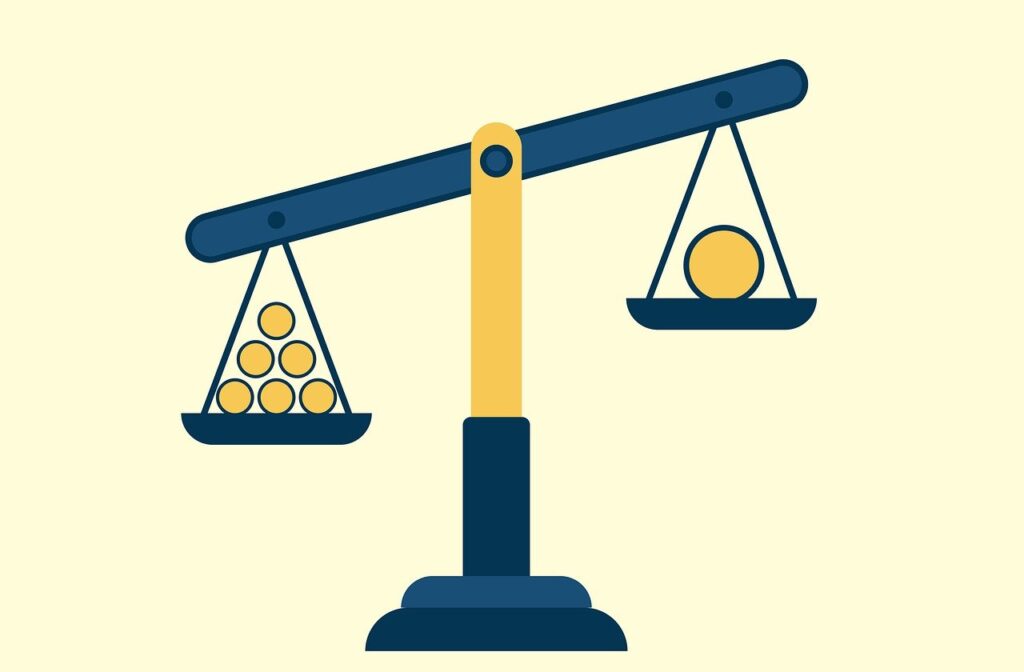Ethical and Professional Translation: English to Vietnamese
Navigating the world of language barriers is a bit like walking a tightrope. You need balance, precision, and a touch of grace. As a professional interpreter, I often find myself in situations where one wrong word can change everything. Especially in healthcare, where patients rely on accurate communication for their well-being.
In-person interactions provide a richer context, leaving less room for error. But let’s not forget the value of telephone professional interpreters. They often serve as the unsung heroes in urgent situations. Each interpreter type has its own place and importance. Relational interpreters add a layer of personal insight, making them essential in more private settings.
Key Takeaways
-
Professional interpreters are crucial for accurate communication, especially in healthcare settings.
-
In-person professional interpreters offer richer context, which helps in reducing errors.
-
Telephone professional interpreters play a key role in urgent situations, providing accessibility.
-
Understanding cultural sensitivity is essential to avoid miscommunication and preserve nuance.
-
Ethical translators balance accuracy and cultural appropriateness, ensuring trust and clarity.

Importance of Professionalism in Translation
Recognizing the need for professional conduct in translation is pivotal. I remember tackling a project once, where accuracy was everything. The text wasn’t just words on a page; it was a bridge between cultures. Professional interpreters act like this bridge, ensuring the message isn’t lost in translation. An in-person professional interpreter can make all the difference, especially in healthcare. They bring empathy and understanding that a machine never could.
I’ve found that professional interpreter interventions are crucial, particularly in medical settings. Patients rely on us to convey their fears, hopes, and questions accurately. A simple misstep could mean the world. So, I focus on every word, every inflection. The variety of interpreters, including hoc interpreters, adds layers to the service we provide. Each interpreter type offers a unique advantage.
In one instance, relational interpreters helped a family understand a complex diagnosis. Their informal style offered comfort, showing that different types of interpreters serve varied needs. Ultimately, choosing the right interpreter service can transform a simple conversation into a meaningful connection, ensuring patients feel heard and understood.
|
Aspect |
Professional Interpreter |
In-Person Professional Interpreter |
Relational Interpreters |
|---|---|---|---|
|
Accuracy |
High |
Very High |
Moderate |
|
Cultural Sensitivity |
Essential |
Critical |
Important |
|
Patient Comfort |
Significant |
Very Significant |
High |
|
Communication Outcome |
Effective |
Most Effective |
Effective |

Cultural Sensitivity in English-Vietnames Translation
The concept of cultural empathy in English-Vietnames translation requires an understanding of both languages’ social and historical contexts. I find that a professional interpreter acts as a bridge, ensuring not just linguistic accuracy but also cultural appropriateness. This is essential to avoid reinforcing stereotypes.
In healthcare, the role of an in-person professional interpreter is transformative. They not just translate, but also help patients feel understood and respected. Translation isn’t just about words; it’s about people and their stories. No two stories are alike, just as no two types of interpreters are.
When I talk about the professional interpreter intervention, I mean it as a lifesaver in medical settings. Here, a professional medical interpreter is indispensable. Their ethical responsibilities include making sure that the message remains intact, yet culturally sensitive.
Different interpreter types, like relational interpreters, bring unique value, especially in private practices. Whether it’s about bridging communication for patients or delivering interpreter services, the human element cannot be overstated. Each ethical translator knows this, and I believe it’s what makes them invaluable.
|
Attribute |
Professional Interpreter |
Relational Interpreters |
Medical Interpreters |
|---|---|---|---|
|
Patients Understanding |
High |
Moderate |
Very High |
|
Cultural Sensitivity |
Essential |
Significant |
Critical |
|
Communication Clarity |
Effective |
Moderate |
Very Effective |
|
Emotional Resonance |
Moderate |
High |
Very High |
|
Ethical Standards |
High |
Moderate |
Very High |
Role of Professional Translators in Healthcare
The involvement of professional interpreters in healthcare goes beyond mere translation. These skilled individuals ensure patients and healthcare providers understand each other, leading to better medical outcomes. A professional interpreter isn’t just bilingual; they are trained to handle medical jargon and communicate it clearly. You know how medical conversations can be tricky, right? Well, imagine trying to navigate that in a different language. That’s where a professional interpreter steps in, bridging that gap.
Having an in-person professional interpreter can significantly enhance the interaction between doctors and patients. It’s like having a trusted guide in a foreign land. Their intervention ensures that patients appreciate their diagnosis and treatment fully. Professional interpreters also support relational interpreters, who might step in informally but lack the medical training.
The presence of professional interpreter services is crucial. It’s not just about words; it’s about understanding. The types of interpreters available, like medical interpreters, offer tailored assistance. Some may prefer an ad hoc interpreter for less formal settings, but the professional touch is unmatched.
-
Ensure clear communication.
-
Bridge cultural gaps.
-
Enhance patient satisfaction.
-
Reduce medical errors.
-
Improve understanding of medical terms.
-
Support ethical translator practices.
-
Offer different interpreter types.
-
Provide professional interpreter intervention.
|
Professional Interpreter Role |
Benefit for Patients |
Communication Quality |
Ethical Impact |
|---|---|---|---|
|
In-person Professional Interpreter |
Enhanced Understanding |
High |
Significant |
|
Professional Interpreter Service |
Comprehensive Care |
Very High |
Critical |
|
Interpreter Intervention |
Accurate Diagnosis |
Effective |
High |
|
Relational Interpreters |
Emotional Support |
Moderate |
Moderate |
|
Ad Hoc Interpreter |
Informal Assistance |
Low |
Minimal |
Ethical Responsibilities of Translators
Addressing the ethical duties of translators, one must tread a fine line. It’s like walking a tightrope where cultural sensitivities meet linguistic accuracy. The role of a professional interpreter is crucial, navigating these complexities with finesse. Their task is to ensure the original voice remains untainted by personal biases. Imagine translating a heartfelt letter – every word, every sentiment must feel genuine.
I once heard a tale of an ethical translator who faced a tough choice. While working in a hospital, they had to interpret a patient’s cultural beliefs without causing offense. Their commitment to ethical standards shone through, ensuring both accuracy and respect.
Training is a must for any professional interpreter. Continuous learning and cultural awareness sharpen their skills. In healthcare, these interpreters can be life-savers, bridging language gaps for patients. The use of interpreter services or a professional interpreter service often leads to improved patient outcomes.
Yet, not all interpreters are cut from the same cloth. There are various types of interpreters. Relational interpreters, for instance, offer unique insights in casual settings. The nuances between an in-person professional interpreter and an ad hoc interpreter can dramatically affect the patients’ experience.
|
Interpreter Type |
Role Importance |
Impact Level |
Ethical Consideration |
|---|---|---|---|
|
Professional Interpreter |
Accurate Communication |
High |
Essential |
|
In-Person Professional |
Enhanced Understanding |
High |
Significant |
|
Relational Interpreters |
Emotional Support |
Moderate |
Valuable |
|
Ad Hoc Interpreter |
Informal Assistance |
Low |
Variable |
|
Professional Medical |
Patient Safety |
Very High |
Critical |
Training Requirements for Professional Interpreters
Addressing the training needs for professional interpreters, I focus on continuous education. Here, experience matters. But staying updated with evolving language trends is crucial too. Think of it as keeping your cultural antennae tuned in!
Attending workshops and seminars helps. These offer a glimpse into new techniques and cultural insights. They provide tools that aid in handling different interpreter types. For instance, understanding the dynamics of relational interpreters can be quite enlightening.
In healthcare, a professional interpreter service is important. It ensures that patients understand medical advice clearly. I’ve seen how proficient medical interpreters improve patient outcomes. Their role is like a bridge in a storm, guiding patients safely to understanding.
While some opt for ad hoc interpreters, trained professionals make a noticeable difference. Especially in high-stakes settings, their knowledge is invaluable. They ensure no message is lost in translation.
Interestingly, interpreter intervention can be a game changer. It influences communication flow, ensuring clarity and comprehension. So, being an ethical translator involves more than just language skills. It’s about integrity and cultural respect.
Here’s a quick table to summarize:
|
Interpreter Type |
Key Focus |
Importance |
Outcome |
|---|---|---|---|
|
Professional Interpreter |
Ongoing Training |
High |
Effective Communication |
|
In-Person Professional |
Cultural Sensitivity |
High |
Clear Understanding |
|
Relational Interpreters |
Personal Connection |
Moderate |
Enhanced Empathy |
|
Ad Hoc Interpreter |
Flexibility |
Low |
Variable Results |
|
Professional Medical |
Patient Care |
Very High |
Safety and Trust |
Comparing In-Person and Telephone Interpreters
When weighing the benefits of face-to-face versus phone interpreters, a few key points pop up. Having a professional interpreter physically present provides a richer communication experience. They pick up on non-verbal cues, offering deeper context. This is especially crucial in medical settings where patients might not express everything verbally. A face-to-face professional medical interpreter ensures a clearer understanding, fostering trust and safety in patient care.
But let’s not count phone interpreters out. They provide flexibility and immediate access to interpreter services, especially in emergencies or remote areas. However, they might miss the nuances that come with physical presence.
Relational interpreters bring a personal touch, often enhancing empathy and connection, which can be beneficial in less formal settings. Yet, they might lack the rigorous training of a professional medical interpreter.
In essence, the choice hinges on the situation’s demands. The importance of the right interpreter intervention can’t be overstated. A study from “Satisfaction with methods of Spanish interpretation in an ambulatory care clinic” found that effective interpreter intervention improves patient satisfaction.
-
Non-verbal cues enhance understanding.
-
Immediate access in emergencies.
-
Flexibility for remote areas.
-
Trust-building in face-to-face interactions.
-
Personal connection with relational interpreters.
-
Professional interpreter service ensures accuracy.
-
Patients benefit from clear communication.
-
Ad hoc interpreter use can lead to variable results.
|
Interpreter Type |
Key Benefit |
Effectiveness |
Outcome |
|---|---|---|---|
|
Professional Interpreter |
Ongoing Training |
High |
Effective Communication |
|
In-Person Professional |
Cultural Sensitivity |
High |
Clear Understanding |
|
Relational Interpreters |
Personal Connection |
Moderate |
Enhanced Empathy |
|
Ad Hoc Interpreter |
Flexibility |
Low |
Variable Results |
|
Professional Medical |
Patient Care |
Very High |
Safety and Trust |
Impact of Interpreter Services on Patient Outcomes
Exploring how professional interpreter services affect patient outcomes reveals some fascinating insights. Among the types of interpreters, the impact of a professional interpreter’s intervention is notable. Patients often experience clearer understanding and enhanced trust when these interpreters are involved. This is no surprise, given that in-person professional interpreters foster more effective communication. I remember a case where a patient’s relief was palpable when an interpreter cleared up a misunderstanding. Their role extends beyond mere translation; they bridge cultural gaps.
Relational interpreters, though less formal, bring a unique personal connection, which can enhance empathy in private settings. Their contributions remind me of a friend who once said, “A compassionate ear listens beyond words.”
Ad hoc interpreters, while flexible, often deliver variable results. This can be tricky for patients needing consistent communication. Research highlights the value of dedicated medical interpreters for improving patient care. For those interested in the nuances of interpreter roles, Leanza and colleagues provide an analysis of interruptions in medical consultations using different interpreter types. This study underscores how professional services elevate patient satisfaction and comprehension, ultimately leading to safer patient environments.
|
Interpreter Type |
Benefit |
Impact Level |
Patient Outcome |
|---|---|---|---|
|
In-Person Professional |
Cultural Sensitivity |
High |
Clear Understanding |
|
Relational Interpreters |
Personal Connection |
Moderate |
Enhanced Empathy |
|
Ad Hoc Interpreter |
Flexibility |
Low |
Variable Results |
|
Professional Medical |
Patient Care |
Very High |
Safety and Trust |
|
Professional Interpreter |
Ongoing Training |
High |
Effective Communication |
Navigating Ethical Dilemmas in Translation
Understanding the ethical dilemmas faced by professional translators can be a bit like walking a tightrope while juggling flaming torches. It involves maintaining neutrality, especially when translating in conflict zones. The stakes are high, as a single misstep can lead to unintended consequences. In healthcare, for example, improper translation can impact patient care and satisfaction. Professionalism demands that I stay true to the source material, avoiding personal biases.
The role of professional translators in healthcare settings is essential. Studies show that their presence can result in better patient outcomes. I can’t help but feel a sense of responsibility when I step into a hospital room. It’s like being handed a delicate glass vase—one wrong move, and it could shatter.
Training is crucial to handle such responsibilities. Ongoing learning ensures I’m up-to-date with evolving language norms. Balancing ethical considerations with professional duties is no walk in the park, but it’s a rewarding challenge.
| Interpreter Type#




